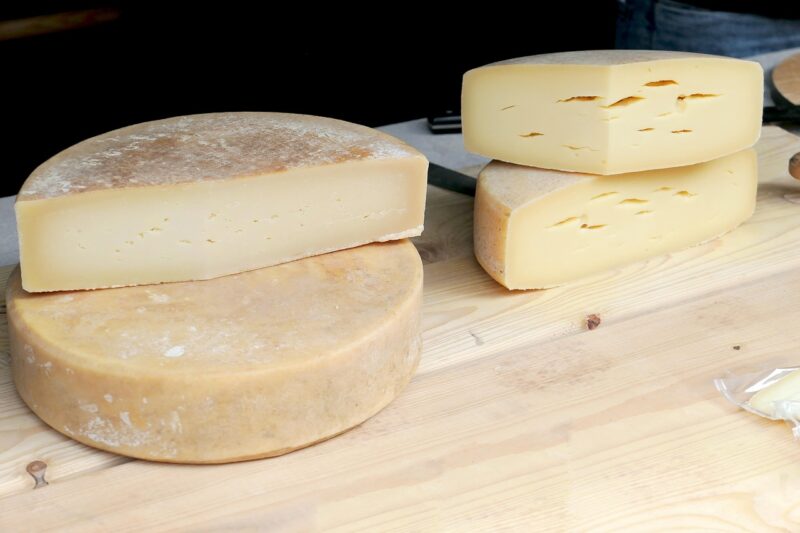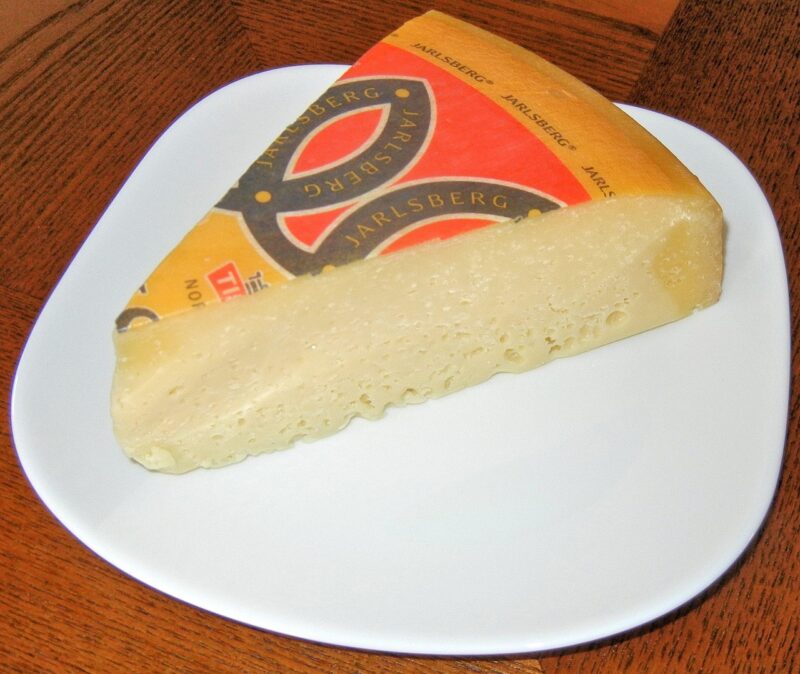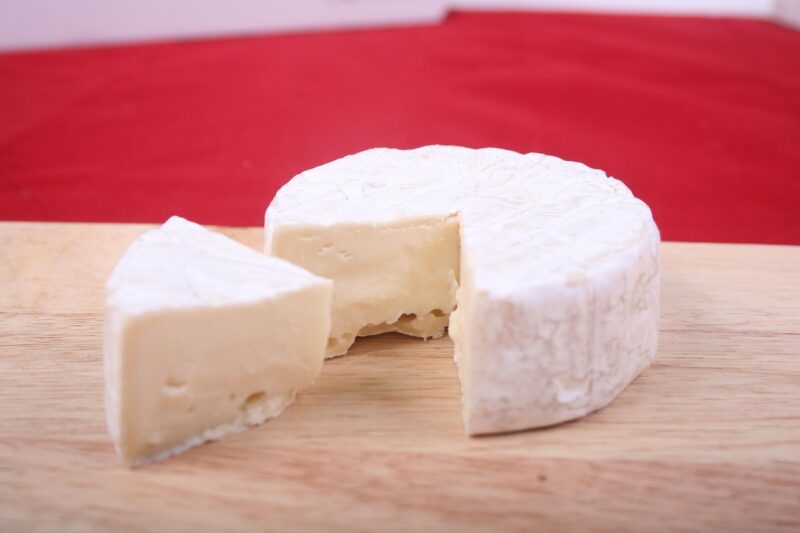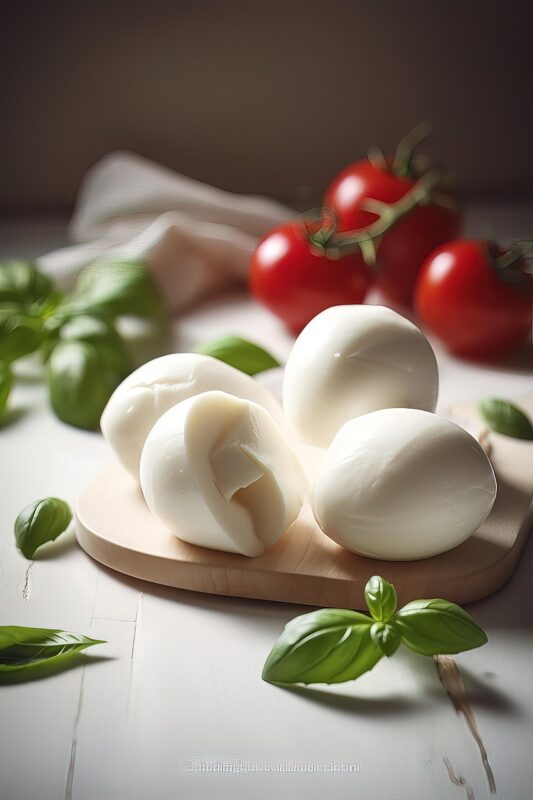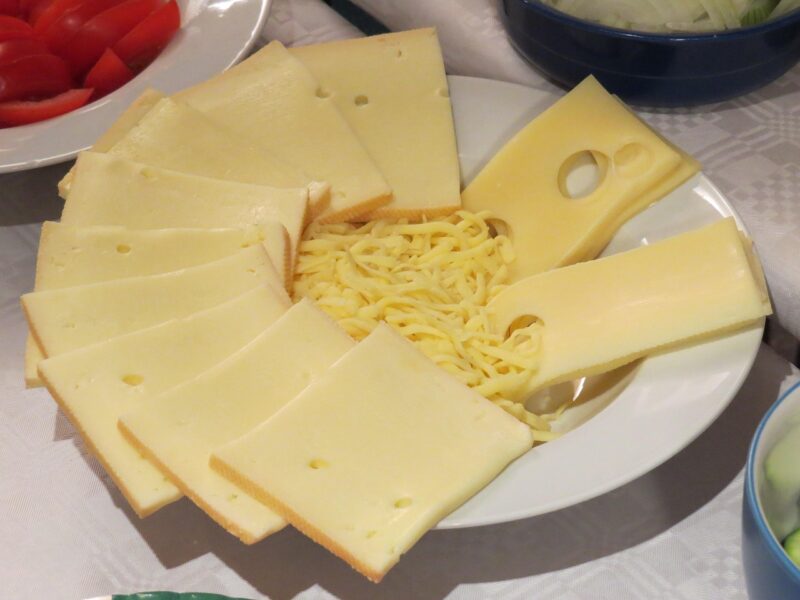Can you freeze cheese? This guide will explore the freezing process, the effects on different cheese types, practical tips for freezing, and even some creative ways to use frozen cheese.
Can You Freeze Cheese?
The simple answer is yes, you can freeze cheese; however, the outcome may differ based on the cheese type. Here’s a closer look at how various cheeses respond to freezing:
Hard Cheeses
Hard cheeses, such as Parmesan, Gouda, and aged Cheddar, are the most freezer-friendly options. Their low moisture content means they tend to hold up well in the freezer. When properly frozen, these cheeses can maintain their flavor and are suitable for grating or slicing post-thawing.
Semi-Hard Cheeses
Semi-hard cheeses like Gruyère and Jarlsberg can also be frozen, although they may experience some textural changes. The loss of moisture during freezing can lead to a slightly crumbly consistency. Nonetheless, they still work well in cooked dishes, where the texture won’t be as critical.
Soft Cheeses
Soft cheeses, including Brie, Cream Cheese, and Ricotta, are more challenging to freeze. Their high moisture content can lead to a significant change in texture, becoming grainy or watery once thawed. While it’s possible to freeze soft cheeses (perhaps for use in cooking), it may not be ideal for serving fresh.
Fresh Cheeses
Fresh cheeses like Mozzarella and Feta can be frozen, but be prepared for potential texture changes. When thawed, they may lose their signature creaminess. However, using them in cooked dishes where they’ll be melted can still yield delicious results.
How to Freeze Cheese
If you’re ready to extend the shelf life of your cheese, here’s a step-by-step guide on how to freeze it properly:
Choose the Right Cheese: Opt for a cheese that is well-suited for freezing, like hard or semi-hard types. Avoid soft and fresh cheeses if you want to maintain the best texture.
Portion Control: Cut the cheese into portions. This makes it easier to use only what you need without defrosting the entire block.
Wrap it Well: Wrap each portion tightly in plastic wrap or aluminum foil. Make sure there’s no air getting in, as this can cause freezer burn.
Use Airtight Containers: Place the wrapped cheese into an airtight container or a heavy-duty freezer bag. This added layer helps protect it from odors and frost.
Label with Date: Always label your containers with the type of cheese and the date it was frozen. Most cheeses can be frozen for around 6 to 12 months without losing quality.
Freezing: Place the cheese in the coldest part of your freezer, usually the back. This helps to freeze it quickly and evenly.
Thawing: When you’re ready to use the cheese, transfer it to the refrigerator to thaw slowly. This gradual process helps maintain the texture better than rapid thawing.
Creative Ways to Use Frozen Cheese

Once you’ve successfully frozen your cheese, you might be wondering how best to utilize it. Here are some creative ideas to consider:
Cooking and Baking
Frozen cheese can shine in a variety of cooked dishes. Grate hard cheeses straight from the freezer, sprinkling them on pasta dishes, salads, or casseroles. Semi-hard cheeses also work well in quiches, frittatas, or au gratin recipes. The melting process can mask any textural changes, allowing the cheese to retain its flavor.
Cheese Sauces
If you find your thawed cheese is a bit crumbly, consider transforming it into a creamy cheese sauce. Combine it with butter, flour, and milk to create a rich sauce perfect for topping vegetables or pasta.
Pizza Night
Frozen mozzarella can be used directly from the freezer for pizza nights. You’ll benefit from its melted goodness, and anyone enjoying the pizza will hardly notice any change from fresh cheese.
Soups and Stews
Adding cheese to soups or stews is another excellent option. Thawed cheese can be incorporated into recipes where it will melt into the broth, enriching the flavor and texture without drawing attention to any changes in consistency.
The Science of Thawing Cheese
Thawing cheese is an important step that can significantly affect its texture and taste. Understanding how to approach this process will help you retain the enjoyable qualities of your cheese.
The Refrigerator Method
The most recommended method is to thaw cheese in the refrigerator. It’s slow but effective for maintaining moisture and texture. Depending on the size of the cheese block, this could take several hours to a full day, so plan ahead.
Countertop Thawing
While faster, thawing cheese on the countertop is less ideal as it exposes the cheese to potentially harmful bacteria if left too long. If you’re in a hurry, ensure you don’t let the cheese sit out for more than a couple of hours.
Cooked Dishes Instructions
If you’re using your cheese in a cooked dish, you can add frozen cheese directly to soup or sauces without thawing it first. The heating process will help it melt seamlessly, and there’s no need to worry about texture as much.
The Shelf Life of Frozen Cheese
Understanding how long your cheese can be stored is essential for maintaining quality. Generally, hard cheeses can be kept in the freezer for up to a year, while softer cheeses might only last about six months. After this time, while the cheese may still be safe to eat, the quality, flavor, and texture can be compromised.
Common Misconceptions About Freezing Cheese
Some myths surround the freezing of cheese that can lead to confusion. Let’s tackle a few common misconceptions:
Freezing Destroys Nutritional Value
This isn’t entirely true. While some nutrients may degrade slightly over time in the freezer, the overall health benefits of cheese remain largely intact. Many people freeze cheese to prevent spoilage, ensuring they have nutritious snacks on hand.
All Cheese Freezes the Same
As previously discussed, this is false. Freezing affects various types of cheese differently. Understanding the nuances will help you make informed choices about which cheeses are best suited for freezing.
Frozen Cheese Can’t Be Used for Fresh Dishes
While frozen soft cheese is not ideal for fresh applications, hard cheeses can still be enjoyed in various ways after freezing. Recognizing how to use frozen cheese creatively can unlock a treasure trove of meal options!
Tips for Best Results
When it comes to freezing cheese, there are a few best practices worth following for optimal results:
Use Fresh Cheese: Always freeze fresh cheese. The longer cheese sits in the fridge, the more its quality declines, making it less enjoyable after freezing.
Avoid Refreezing: Once cheese has been thawed, do not refreeze it. This can lead to significant textural and flavor changes.
Evaluate Texture Post-Thawing: Accept that some cheeses will change in texture after freezing. Embrace this in your cooking by using them in sauces or melted dishes.
Experiment with Recipes: Play around with recipes specifically designed for using frozen cheese. This not only utilizes what you have on hand but also expands your culinary repertoire.
Conclusion
The question “Can you freeze cheese?” has a nuanced answer. Yes, you can freeze cheese, but the outcome hinges on several variables, including the cheese type, storage methods, and intended use. Embracing the freezing process can open up new avenues for enjoying cheese, minimizing waste, and extending its shelf life.
Understanding the science behind freezing and thawing offers valuable insights that can greatly enhance your culinary experiences. No longer do you have to fear that leftover cheese will go to waste; instead, it can find new life in your favorite dishes. Whether you’re making a comforting mac and cheese or summoning the flavors of a rich cheese sauce, frozen cheese can be a valuable asset in achieving delicious meals.



